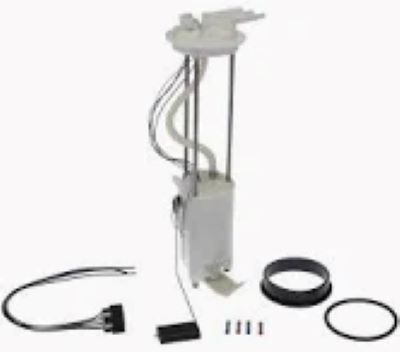By spotting fuel pump problems earlier, you can help to avoid some significant engine damage and repairs! Symptoms of a faulty crank position sensor include difficulty starting, stalling, reduced fuel efficiency and weird noises. A failing fuel pump will usually have difficulty maintaining pressure of the necessary strength, which is generally 30 to 60 psi for most vehicles and essential for effective fuel injection. Anything lower than this range causes "lean" and lean conditions mean there isn't sufficient fuel feeding the engine, which leads to poor acceleration and an intense occurrence of stalling.
The pump may not reach the proper pressure during ignition, which is why hard starts are a common symptom of fuel pump problems. A fuel pump going in into the early stages of its failure mode should not result in an over 5 seconds crank time or require more than one key cycle to start. One in every five cold-start problems are caused at least partially by failing or weak fuel pumps. That number jumps to more than one in three for cars with more than 100,000 miles on their clocks.
Changes in your fuel efficiency: A sudden decrease of fuel economy can also be a sign of those same pump problems. So when the pump stops running and is no longer pressing fuel properly toward the engine, it can cause a 10-20 percent increase in fuel use because the motor is compensating for the lack of that fully efficient flow. Regular fuel efficiency checking can help the early detection of these problems. Pay attention to how often you get gasoline and – since it's a difficult thing to gauge from one fill-up the next – if your habits start changing then that change could be indicative of problems with the pump.

However, whining or buzzing noises that originate from the fuel pump are usually caused by worn out internal components or clogging in located at the vehicle's rear. When the fuel filters are blocked, it can be louder since the pump has to work harder to keep up pressure. Almost 30% of the complaints about fuel pump noise is a result of either obstruction or dirt build up in the pump leading to malfunctioning and eventual premature death. This ensures that sediment in the bottom of your tank stays out of your lines and will reduce ignitor clogging. 1/4 empty is a good rule of thumb
The most accurate diagnosis is available to those with access to a fuel pressure gauge to check the pressure directly. Any reading too low below the recommended level for your vehicle points to pump failure, because a good pump will keep up with pressure. Replacing the fuel filters every 20,000 – 30,000 miles will avoid early pump wear or any loss in performance as well.
Effectively identifying common fuel pump issues mean timely action and prevent complications leading to higher repair costs. For more details about fuel pump care and types visit Fuel Pump.
